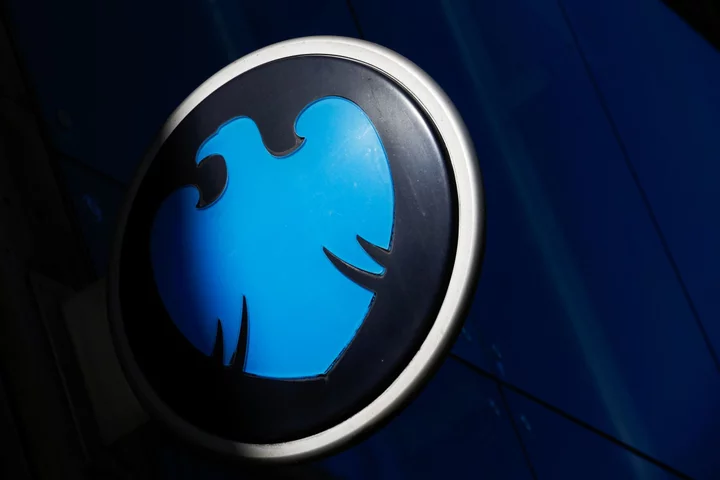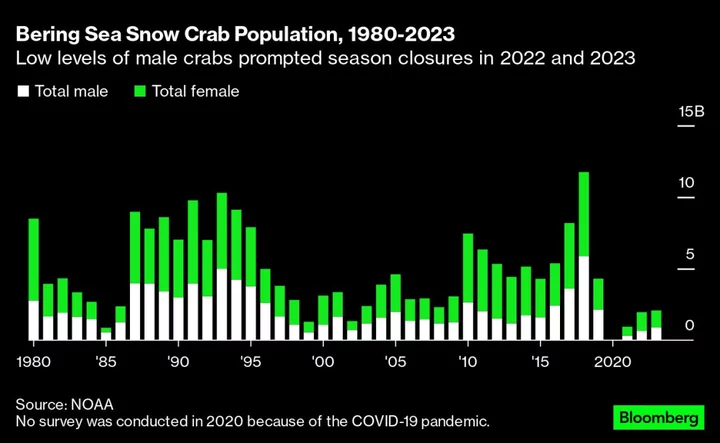Asset managers selling funds into the European Union risk having client flows “meaningfully” disrupted as regulators in the bloc consider a major overhaul of ESG investing rules, according to analysts at Barclays Plc.
The EU Commission opened the door to a wholesale review of the Sustainable Finance Disclosure Regulation last month, when it launched a consultation that has industry insiders bracing for years of upheaval. According to Mairead McGuinness, the EU’s commissioner for financial markets and services, the goal is to ascertain whether SFDR is in fact “fit for purpose.”
The development means there’s a very real possibility the bloc will introduce an ESG fund labeling framework that would mark a departure from the current setup, according to Barclays analysts Scott Gordon and Maggie O’Neal.
The introduction of formal ESG fund labels could have a “meaningful” impact across “controversial and high-emitting sectors, and sustainability leaders,” the analysts wrote in a client note.
SFDR currently requires asset managers to split funds into three ESG categories: Article 6 (ESG goals aren’t deemed relevant), Article 8 (ESG is promoted) or Article 9 (ESG is made an objective). There are close to $6 trillion in funds “of various quality levels” registered as Article 8, “affecting the clarity and credibility of the system,” according to Bloomberg Intelligence analysts Clelia Imperiali and Adeline Diab.
AUM Per SFDR Article Captured as of March 2023
Stricter rules around the current Article 8 universe “could impact investment flows meaningfully,” Gordon and O’Neal said. “An official fund label would likely come with minimum standards and stricter rules on holdings and exclusions.”
SFDR was adopted in 2019 and enforced two years later. It was hailed as the gold standard for how to direct capital toward environmentally and socially acceptable activities, bolstered by strong levels of governance. But it wasn’t long before major shortcomings emerged, including the EU’s failure to provide a clear definition of what it means by a sustainable investment.
Confusion around how to interpret SFDR’s disclosure categories lurched the fund industry into a drawn-out phase of reclassifications last year, affecting hundreds of billions of euros worth of client assets and angering investors.
Analysts at Goldman Sachs Group Inc. have since released a study showing that a fund’s SFDR disclosure category can make a significant difference to client flows, with Article 9 emerging as the most coveted.
“The EU is clearly listening to investor concerns about the SFDR more widely,” Gordon and O’Neal wrote. “But answers to many questions remain elusive. We expect more detailed clarifications from the EU in 2024.”
SFDR Key Policy Update & Reporting Dates
The “comprehensive consultation” that the EU has launched into SFDR “will take months to digest and analyse, with significant changes in the regulation not likely in the short term,” the analysts said. Given the deadline for responses is Dec. 15, there’s still “a lot of time for detailed feedback” from market participants, they said.
The EU Commission “is explicitly acknowledging that the SFDR is being used for a purpose beyond disclosure,” Gordon and O’Neal wrote. “There is a growing risk of greenwashing, according to the Commission, as investors use the SFDR as a fund label and a marketing tool, rather than as the basis for what sustainability information should be provided to end-investors.”
The EU never intended for SFDR to be used as a labeling system, and under the current system there are “no clear sustainability rules, or minimum standards of what good looks like, nor is there a proper governance system in place to enable it to function as a fund label,” the analysts said.
“The EU is understandably concerned that the SFDR is currently functioning as an EU-sanctioned stamp of approval, despite it not being one,” they said.
--With assistance from Saijel Kishan.









